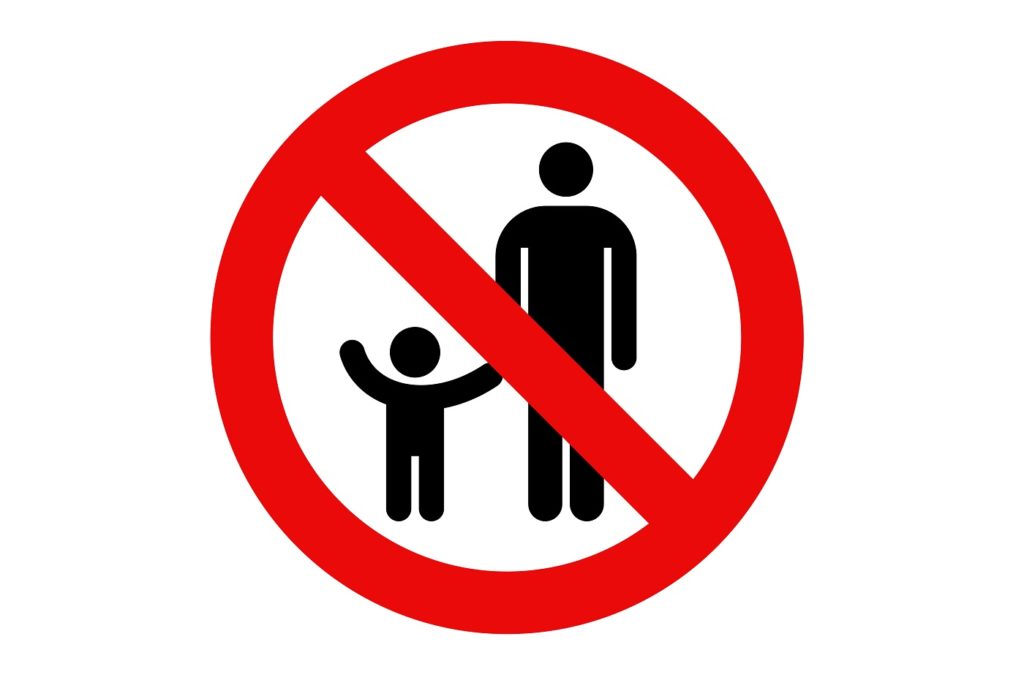The Bookshelf: The Pleasures of the Table

One of the vital experiences of which the current pandemic robbed us for too long is the dinner party with friends. Reading about food, too, can be a pleasure in its own right, whether one tries out daring new recipes or not. My small kitchen library has a few notable classics that are as interesting for their authors’ voices as for their instruction in preparing dishes.
What Pope Francis Teaches Us about Free Markets

Are Pope Francis’s insights into our world’s social and economic situation perfect? No. Should we wish that his economic advisers would represent a broader range of views and include more pro-market voices? Yes. Nonetheless, Fratelli Tutti is anything but an unmitigated attack on markets and individualism, as some have been eager to depict it. It holds valuable advice for those who favor capitalism.
Can We Escape the Confessional State?

In Andrew Walker’s new book, religious liberty is presented less as a political doctrine than as a description of reality itself. In this view, religious liberty is the logical consequence of an orthodox view of God as the transcendent horizon of all human effort and a view of human beings as agents with consciences not subject to direct political coercion.
The “Fairness For All Act” Is Not Fair, Does Not Benefit All, and Will Not Result in a Settlement of Contentious LGBT Issues

LGBT lobby groups do not want to “live and let live.” They want their interests to live and the interests of religious conservatives to die. They are playing to win. Religious conservatives must do the same.
Vaccines, HEK293 Cells, and Cooperation with Evil: A Response to Michael Pakaluk

Neither Michael Pakaluk’s criticisms of a statement by pro-life scholars on COVID-19 vaccines nor his positive arguments against those vaccines hit their mark. The purchase and use of HEK293 and similar cell-lines are not intrinsically impermissible. Well-formed people of good faith may be moved by the very strong reasons that exist to take the vaccine to do so.
The Sanctifying Work of Pregnancy

Even as a woman shapes the child growing within her, the joys and trials of pregnancy are shaping her, sanctifying her, and teaching her how to depend on others during this season of peculiar service.
Congress Plays at Anti-Civics

The Civics Secures Democracy Act will give the federal bureaucracy tremendous leverage to influence state and local decisions about civics education content and administration, thus making them less responsive to the people. This is an anti-civics civics bill that will stoke the fires of discord and alienation.
Reflections from a Dean of Students: Virtue versus the Agreeable

Civilize your children long before you allow them to inhabit the decivilizing island of social media. Make sure that they can govern their own souls. But remember that virtue isn’t only about restraining impulses. It is also, and especially, about loving the good. Don’t just take things away. Give your children something better.
To Protect Free Speech on Social Media, Reform Section 230

Social media companies don’t fit into the framework of Section 230. Pushing the false dichotomy of “platform” versus “content creator” gives these companies more power. They can hide behind their status as platforms, claiming their filtering is perfectly neutral, undermining free speech all the while.
Government Handouts Won’t Reverse the Baby Bust: Three Responses to Gladden Pappin

Should social conservatives embrace large-scale economic programs aimed at subsidizing family formation and childbearing? Is it more effective to focus on long-term economic growth? Are our declining birth rates really cause for concern, anyway? If they are, to what extent can the problem be solved by governmental family subsidies?
It’s Time for Social Conservatives to Stop Fawning Over Hungary

Gladden Pappin, like many other social conservatives, has been too swayed by the experiences of one country: Hungary. His credulity with regards to the Orban government’s family policy claims has led him, and many other conservatives, to a consequential misunderstanding of what has actually happened in Hungary—and what it implies for conservative policy in the United States.
The Family Policy Imperative

Conservatives need to start thinking of children as an investment in our economic future. Families, too, need to start thinking of children as an investment and not a cost—as they did in the past, when children were employed in farm work. The only way to do this in the modern economy—an economy that has severed the age-old link between children and additional labor—is by ensuring that economic resources are directed toward families by the state.
America, Liberalism, and Catholicism

Resist the temptation to outsource your thinking to a team or a party. Rooting for a team is appropriate in sports, and partisan politics may be a necessity of a political system like ours, but both are detrimental to the intellectual process. Catholics should not think of discussions about the Church’s relationship to American liberalism as a Battle Royal between competing camps—but as a conversation among friends seeking the truth in community. Adapted from the introductory remarks delivered on April 15, 2021 at the University of Dallas’s conference on America, Liberalism, and Catholicism.
Ramona’s World: The Quiet Christianity of Beverly Cleary’s Beloved Books

Beverly Cleary did not make Ramona a specimen of moral improvement, or a Christian evangelist. She made her a Christian child. Unlike Christian families today, however, Ramona’s family lives a world in which traditional morality is the cultural default. Going to church makes you normal, and practicing Christianity garners social rewards. Christian life simply means living.
Abortion, Vaccines, and Moral Imagination

Scholars who advocate receiving the vaccinations for COVID-19 should not minimize or brush aside concerns that those vaccines were produced with the help of abortion. Facing the problem more fully should not rule out vaccination, but it will help us better understand the depths of our entanglement in this late-modern culture of death.
To Die Well: Learning The Lost Art of Dying

No magic pill or incantation solves the mystery of death, but a new handbook shows mortals how to use medical resources and cultural practices to die better. It emphasizes our interdependence, cautioning readers to avoid therapeutic obstinacy, to recognize the moral dimensions of dying, to grieve, and—in so doing—to grow.
Arkansas and the Politics of Experimenting on Children

The Arkansas legislature knows something the governor apparently does not: hormonal treatment of adolescent gender dysphoria yields little across samples and studies. Transgender youth medicine involves numerous known and serious risks that are already identifiable, while the long-term effects and possible harms of off-label drug uses are completely unknown.
On the Primacy of Embodiment, Against the Online Instructors

The inadequacy of online education reminds us of our embodied nature as human beings. We yearn to experience reality as the integrated persons we are.
How to Kill a City: Learning From De Blasio’s Dystopia

Progressive strongholds face unprecedented fiscal challenges. The example of New York City illustrates what not to do—and suggests a way forward.
Protect Both Religious Freedom and LGBT Rights: Support the Fairness For All Act, Not the Equality Act

The time has come for people of faith to acknowledge reality and seek a resolution that protects both LGBT civil rights and religious liberty. The Fairness For All Act is a serious effort to reach a sustainable and balanced resolution while there’s still time.
A Contest of Civility: The Stakes of the Battle over the Equality Act

There are far more egregious consequences of the Equality Act than its lack of protections for religious freedom. It celebrates and legitimizes a way of life that is fundamentally destructive, both on an individual and societal level. The Equality Act would not merely alter legal code. It would engender and nourish a burgeoning assault on any who publicly dissent from the new secular orthodoxy.
From Stamps to “The Stack”: Protecting Free Speech in a Digital Age

Parliament’s tax on paper to control the colonists’ speech through a public-private partnership has striking parallels to the public-private partnership of government and big tech today. Protecting the stack—the digital age printing presses—is not a matter of liberal or conservative politics, but of core American freedoms.
Returning to Egypt: On the Loss of Mercy

Easter reflections are supposed to be lighthearted and joyful. But I’m gravely concerned by the unkindness in the name of kindness so evident in our cultural moment. Our society appears determined to return to the mastery and enslavement of Egypt. We have become forgetful of human limits, do not stand in awe of God’s acts, and so we have become cruel. Jewish and Christian holy days remind us of the need for mercy if society is to overcome its hatreds.
What Easter and Passover Can Teach Us About Confronting Cancel Culture

Christianity and Judaism have survived, and now thrive, not by erasing the problematic aspects of their past, but by openly acknowledging them—by building them into their rituals and incorporating them into the very fabric of their faith.




